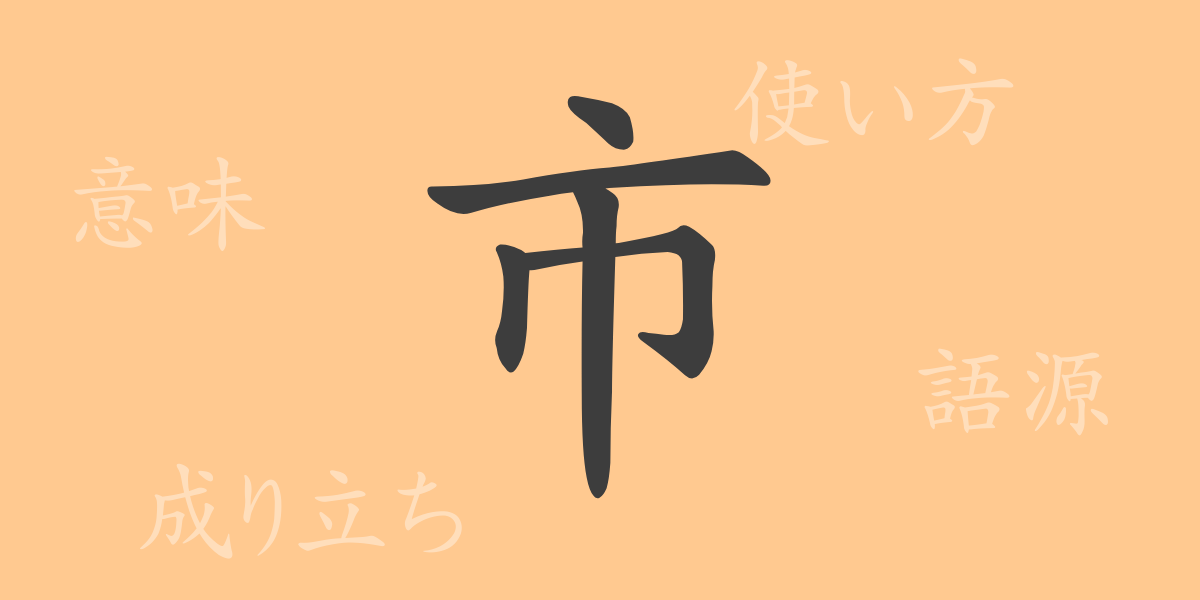The kanji deeply rooted in Japan’s culture and history play an essential role in everyday life. The character “市(し)” is one such example, closely tied to our daily experiences. Historically signifying a marketplace, this kanji has been integral to community formation and economic activities. In this article, we will explore the origins, meanings, uses, readings, and idioms associated with “市(し),” unveiling its comprehensive essence.
Origins of 市(し)
The character “市(し)” originated in ancient China, where it was used to denote a place where people gathered to barter goods. The shape seen in oracle bone inscriptions depicts items bound together with ropes, evolving into a symbol representing trading places. Over time, it became established as a character signifying markets and overall commercial activities.
Meanings and Uses of 市(し)
In modern Japanese, “市(し)” is primarily used in two contexts. The first meaning is “market,” referring to a place where goods are bought and sold or the act of trading itself. The second use is as an administrative division, denoting a “city,” which is larger than a village or town. This usage is evident in the names of many cities across Japan.
Readings, Stroke Count, and Radical of 市(し)
Here are the fundamental details to understand the form and meaning of the kanji “市(し).”
- Readings: The on’yomi (音読みおんよみ) reading is “シ(し).” There is no kun’yomi (訓読みくんよみ) reading.
- Stroke count: “市(し)” consists of 5 strokes.
- Radical: The radical for “市(し)” is “巾(はば).”
Idioms, Phrases, and Proverbs Using 市(し) and Their Meanings
There are numerous idioms, phrases, and proverbs in Japanese that include “市(し).” Here are a few examples:
- 市場(いちば): A place where goods are traded.
- 市民(しみん): Residents of a city.
- 市立(しりつ): Facilities or schools established and operated by a city.
- 市井の人(しせいのひと): Ordinary citizens.
- 市を取る(いちをとる): To make a profit in business.
Conclusion on 市(し)
The character “市(し)” conveys more than just place names or locations; it plays a significant role in our lives and culture. Representing the central hubs of commercial activity and the foundational units of local communities, this kanji is deeply connected to Japan’s history and modern economic landscape. Through this article, we hope you have gained a deeper understanding of the kanji “市(し)” and its rich meanings and uses.

























